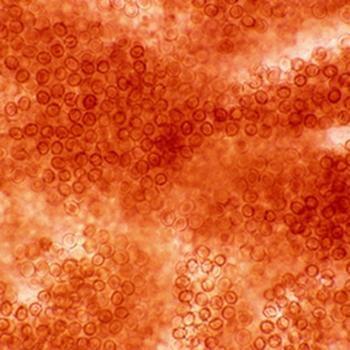
There has been a “renaissance” in the treatment strategies of patients with non-small cell lung cancer (NSCLC) who have EGFR-mutation–positive disease, Edward S. Kim, M.D.

There has been a “renaissance” in the treatment strategies of patients with non-small cell lung cancer (NSCLC) who have EGFR-mutation–positive disease, Edward S. Kim, M.D.

Several questions still remain regarding the treatment strategies for elderly patients with multiple myeloma, many of whom may have other comorbidities or trouble tolerating therapies.

To better understand ovarian cancer, as well as predict when women might relapse, it is crucial that researchers start investigating more of the molecular phases of the disease, says Peter Dottino, M.D.

After years with few advancements, five new agents were approved to treat bladder cancer within the last year. CURE spoke with Terence Friedlander, M.D. about the shifting treatment paradigm for patients with the disease.

PARP inhibitors are changing the way ovarian cancer is treated.

More research is needed on the other genetic mutations, besides BRCA, that patients with ovarian cancer harbor so that they can be used to help plan treatments.

Sumanta Kumar Pal, M.D., associate professor, Department of Medical Oncology, City of Hope, covered the scope of exciting genitourinary cancer data presented at the 2017 ESMO Congress, with a sharp focus on the CABOSUN and CheckMate-214 trials.

CRISPR technology may one day lead the field in turning off genetic mutations that cause numerous diseases, such as lung cancer. CURE spoke with Monte Winslow, Ph.D., about CRISPR's current use in mouse models.

Peter Voorhees, M.D., discusses the advancements in multiple myeloma treatment, as well as where he hopes the field will go in coming years.

“The goal is to identify more of these driving genetic alterations and to come up with treatments that we can target,” said Das in an interview during an interview with CURE.

Kendra Sweet, M.D., discussed the various factors that must be taken into account when prescribing first-line therapies to patients with CML, the novel studies that are paving the way for improved outcomes in patients, and the increasing likelihood for TKI discontinuation on the horizon.

MPN treatment and diagnostic strategies have come a long way in recent years, but still have a ways to go.

During an interview with CURE, Desai, an assistant professor of medicine at Stanford Medicine, shared insight on his research in stem cells and why discovering which cells have the potential to form lung cancer is significant to the treatment paradigm.

Pierre Massion, M.D., sat down with CURE to discuss lung cancer screening and prevention.

Increasingly, immunotherapy drugs for advanced melanoma are being studied in combination.

Blood-based biomarkers are moving into the realm of non-small cell lung cancer (NSCLC), and while tissue biopsies are still the standard, if plasma assays are positive, they can be helpful in deciding the first-line treatment that patients should receive.

When it comes to active surveillance and prostate-specific antigen (PSA) screening for localized prostate cancer, the paradigm has been shifting and the debate over which is correct has been raging on in recent years, says Andrew Stephenson, M.D.

Over the years, stem cell transplantation has drastically evolved, not only moving into different types of hematologic malignancies, but also into patient populations of different ethnicities, says Tsiporah B. Shore, M.D.

Expert Lisa G. Roth, M.D., discusses the unique needs of AYA patients with Hodgkin lymphoma.

Imbruvica (ibrutinib) continues to demonstrate benefit in patients with chronic lymphocytic leukemia (CLL) who had at least one prior therapy, according to a four-year follow-up of the RESONATE study, which compared the BTK inhibitor to Arzerra (ofatumumab).

There may be an upcoming shift in the treatment paradigm of patients with EGFR+ and ALK+ lung cancer.

While new treatments continue to move into the realm of lung cancer treatment, surgery is still a mainstay, says Eric Lambright, M.D.

Kari B. Wisinski, M.D., talks about new agents being explored in triple-negative breast cancer.

Amye J. Tevaarwerk, M.D., discusses which patients with ER-positive breast cancer may be good candidates to continue endocrine therapy after five years.

Clinical trial enrollment is vital for the field of MPN treatment to continue to progress forward.

Smoking is a risk factor for a number of different types of head and neck cancers, but quitting is not always easy.

Grzegorz S. Nowakowski, M.D., discusses the potential for genetic testing for patients with mantle cell lymphoma.

Daniel Morgensztern, M.D., discusses the exciting future of immunotherapy for patients with non-small cell lung cancer.

Matthew Gubens, M.D., discussed the future of biomarker testing in non-small cell lung cancer.

Shana Wingo, M.D., discusses surgery's changing role in the treatment of ovarian cancer.